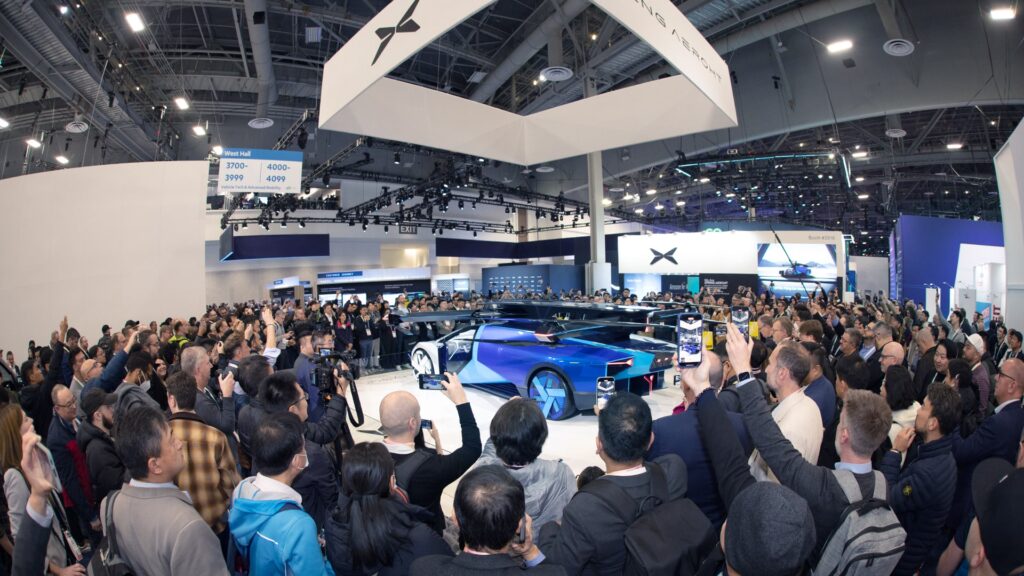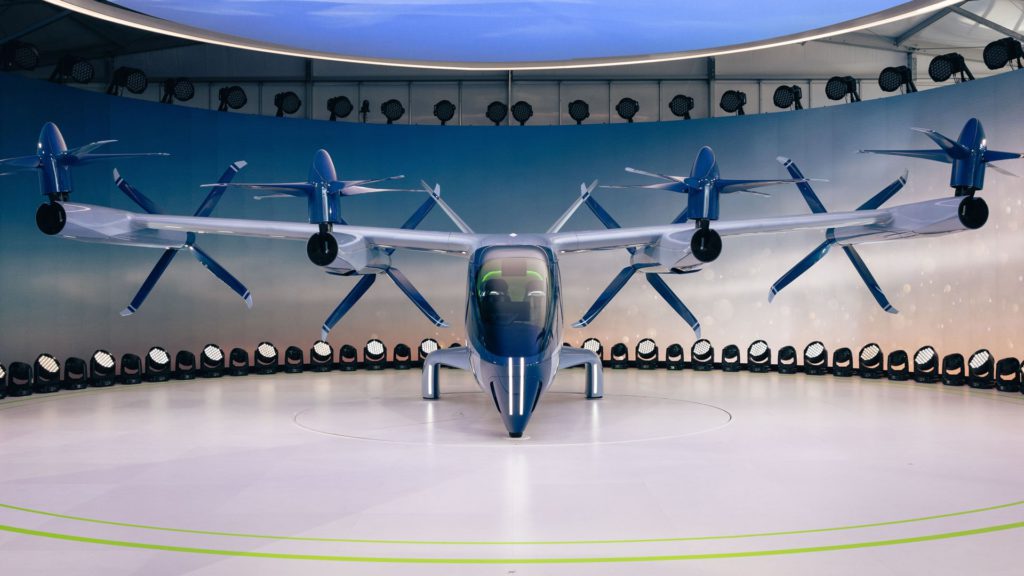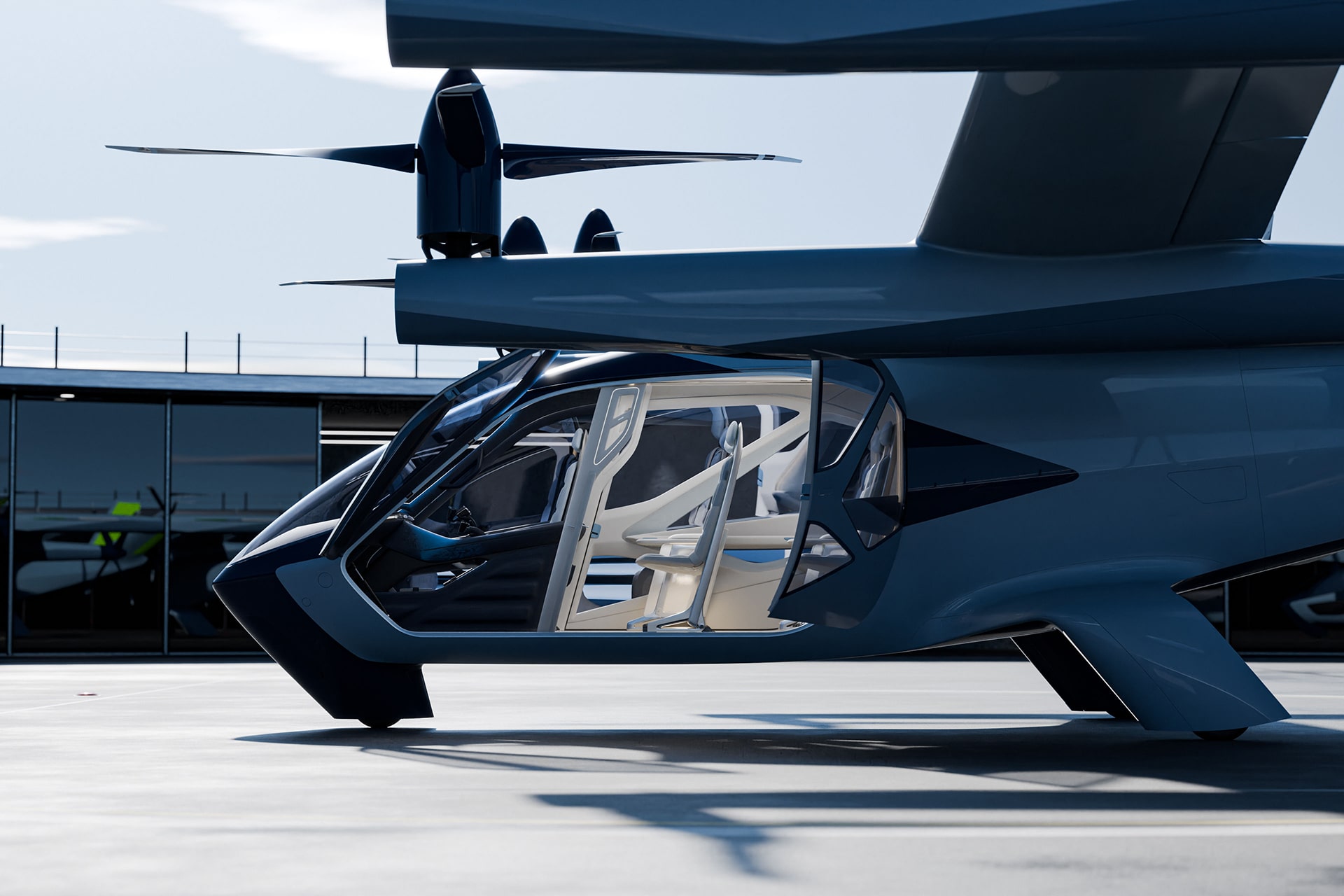Xpeng AeroHT will start taking orders for its flying car late this year, the subsidiary of Chinese electric vehicle maker Xpeng Motors said, with deliveries to start in late 2025.
Xpeng’s vehicle was just one of the flying vehicles on display at the CES consumer tech show in Las Vegas, though the company was the only one to give a timeline for commercial sales.

Dubbed the Land Aircraft Carrier, the modular vehicle consists of two segments: a flying module for low-altitude transport and a six-wheeled module for use on the ground, according to the company.
The vehicle will first be sold in China for more than RMB 1 million (USD 140,000). Buyers should be able to fly the vehicles in designated trial areas first, the company said.
While most of its global peers are targeting business and public service sectors, Xpeng has its sights set on the consumer market. The company also exhibited a concept electric vertical takeoff and landing (eVTOL) flying car at the Las Vegas event. Unlike the Land Aircraft Carrier, this vehicle is a single unit that can both fly and drive.
Brian Gu, co-president of Xpeng Motors, said the company’s products are intended for the Chinese market and the company is actively talking to regulators about a gradual roll out of flying cars in the country.
“I think it will take time to educate the consumers. So, we don’t have any illusion that this thing immediately will be millions of vehicles flying around,” he said, adding that he expected the first batch of buyers will be aviation enthusiasts.
Gu said the company currently has no plan to sell electric cars in the US and is still “discussing internally about the best timing to enter the US” Xpeng started selling EVs in Europe in late 2020.
The company still faces challenges in delivering flying vehicles to consumers, however. Components such as batteries and flight control systems must be jointly developed with core suppliers, as there are hardly any mature products available on the market, Qiu Mingquan, vice president of Xpeng AeroHT, told Nikkei Asia.
“We will also encounter issues related to airspace approval, certification and regulations. Consumers may also need to obtain a simple flying license, although such an examination does not currently exist domestically due to the novelty of our product,” Qiu said.
But China is quite supportive of the emerging sector, an executive from another Chinese eVTOL company said, adding Beijing is keen to take the lead in setting global standards for the electric aviation field, similar to its approach to 5G and 6G technologies.
In February 2021, China introduced the concept of a “low-altitude economy” into its national planning, and last year at least 16 provinces incorporated that phrase along with general aviation into their government work reports. The Central Economic Work Conference held in December also highlighted low-altitude economy in policy discussions.
Other exhibitors also showed off flying vehicles at CES. On Tuesday, Supernal, Hyundai Motor Group’s advanced air mobility company, unveiled the S-A2, a pilot-plus-four-passenger eVTOL vehicle product concept. It introduced a prototype at CES in 2020.

Unlike Xpeng, Supernal is targeting businesses rather than individual consumers. The company said it intends to fly the pre-production aircraft before 2026 and have the concept vehicle ready for production by 2028.
“The regulators have been working to evolve their regulations in the past few years and come up with a framework,” an executive from Supernal told Nikkei Asia. “Companies like us and some of our competitors are working with the authorities in the US and Europe at this stage.”
This article first appeared on Nikkei Asia. It has been republished here as part of 36Kr’s ongoing partnership with Nikkei.

